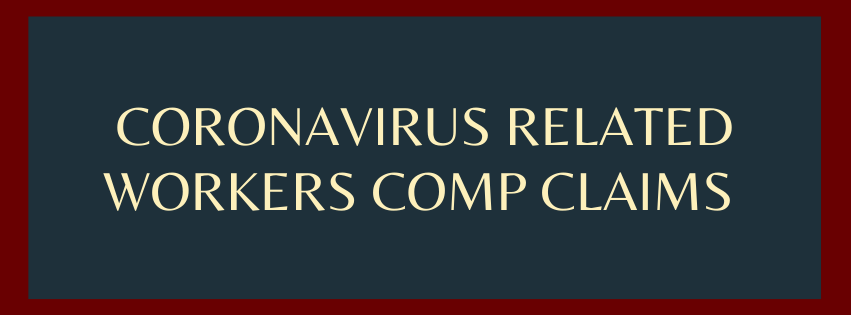If your employees are at an exposed risk of contracting COVID-19 as a result of performing their essential job functions, they may be eligible to file workers compensation claims. Exposure to the virus is classified similarly to injury in worker’s compensation law, and employees who come into contact with Coronavirus at work or during work-related travel can therefore file claims for compensation, regardless of whether they actually become ill. To manage these claims and mitigate their effects, you must first determine the risk factors that your employees face.
What’s Your Industry?
Certain industries, such as the healthcare field, pose a higher risk of infection to employees. Other professions that come into contact with the public on a regular basis, such as grocery store workers, are also at an elevated risk.
Are Your Employees Traveling for Work?
Although most non-essential work travel has been cancelled, any members of your team who have travelled in the past few weeks could still be at a higher risk of contracting COVID-19. This includes national, international, and even local travel. The general timeline for showing symptoms after contracting Coronavirus is 10 days, so count back at least that far to determine who may be at risk.
Who Do You Work With?
Even if your field isn’t considered high risk, your employees may frequently come into contact with a neighboring industry that poses a threat. Think about which of your vendors and other partners might pose an elevated danger of infection to your staff and limit in-person exposure.
The Determining Factor
If you’ve asked yourself all of the above questions and have come to the conclusion that your workforce is at no greater chance of coming into contact with the virus than the general public, you are unlikely to face an elevated number of valid workers comp claims. Still, observing a quarantine period in accordance with your local laws is the best way to protect yourself from any liability. You can learn more about the financial relief options available to you through the IRS in our article titled “IRS Announces Paid Leave and Tax Credit Policies for Coronavirus.”
Create a Plan
Regardless of your industry’s risk level, you should have a contingency plan in place in the event that you do face worker’s comp claims. According to HR Morning, some states, such as Washington, are urging employers to continue to pay workers who are in quarantine after being exposed to the virus on the job in addition to the worker’s compensation benefits the state is providing. These benefits include testing, medical care, and time-loss payments.
The best defense against worker’s compensation claims is to minimize the risk of exposure to your staff. Institute a work-from home policy if possible, cancel all work-related travel, and isolate individuals who may have come into contact with the virus while maintaining employee privacy. For more information about how to navigate COVID-19 as a small business owner, read our article here.
